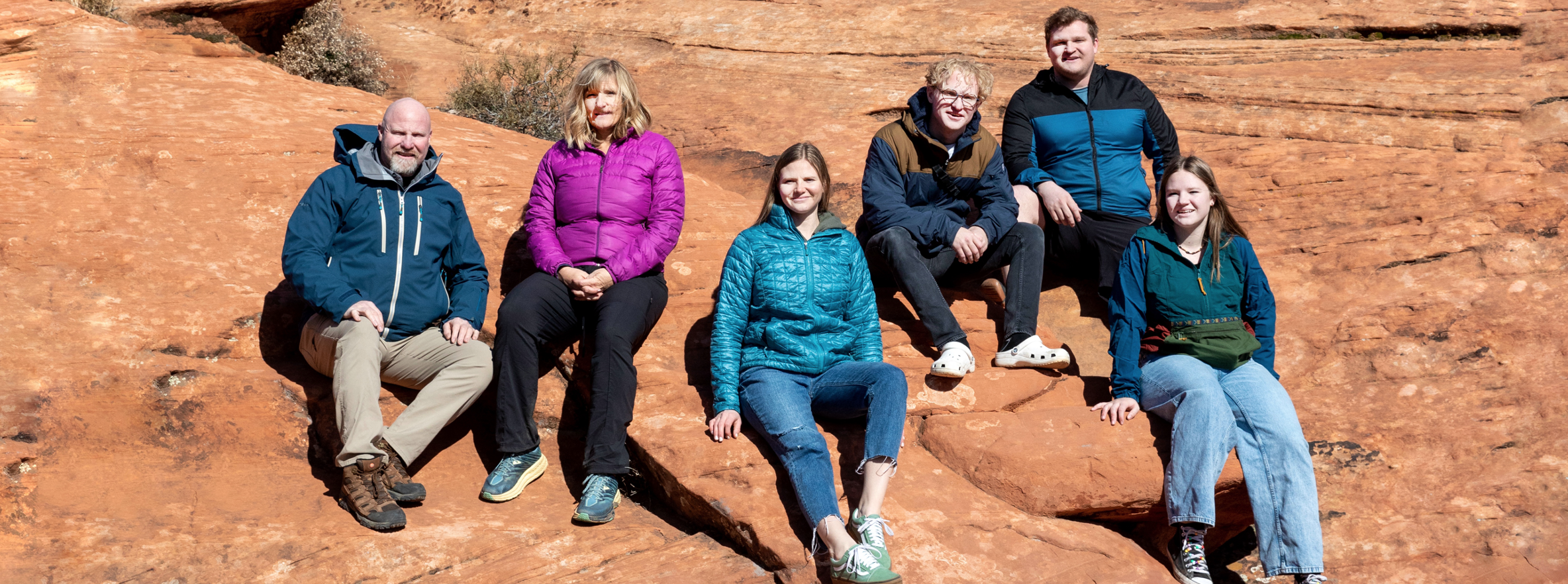
Our News
The Importance of Self-Advocacy: Supporting Patients and Caregivers in Their Rare Disease Journey
February 28, 2023
Alnylam Pharmaceuticals
Since the inception of Rare Disease Day in 2008 by EURORDIS, at the end of February, the rare disease community unites to spread awareness and support the estimated 300 million people worldwide living with a rare disease and the caregivers who assist them every step of the way.1
For many, this year's Rare Disease Day is particularly meaningful, as 2023 also marks the 40th anniversary of the Orphan Drug Act in the United States. Passed by the U.S. Congress in 1983, after years of grassroots self-advocacy efforts by patients and patient advocacy organizations, the Orphan Drug Act is legislation that incentivizes biopharmaceutical companies to research and develop treatments for rare diseases, offering hope to smaller patient populations who had often been left behind or overlooked as medical innovation boomed. Since being signed into law, considerable progress has been made in advancing new treatments for rare diseases, with more than 1,100 orphan drug approvals by the FDA.2
Despite this progress, those living with rare diseases face many challenges in receiving an accurate diagnosis and appropriate care. The journey to diagnosis can be long and the process daunting, for both patients and healthcare providers due to disease rarity. Doctors are taught to look for the obvious cause first rather than a rare disease. That’s why one of the key objectives within the rare disease community, and for Rare Disease Day, is to educate and encourage patients to self-advocate and keep pressing for a diagnosis.
The Clement family is a testament to the power and the importance of self-advocacy. A family from Utah (U.S.), the Clements advocated to find answers for their son, Colby, after he experienced kidney failure and received a kidney transplant as an infant. Their search continued when Colby’s symptoms returned post-transplant, which ultimately led to his diagnosis of primary hyperoxaluria type 1 (PH1), a rare, inherited disease. Incidentally, his two sisters were also diagnosed with PH1, which affects an estimated 1,300 to 2,100 individuals across the U.S. and Europe.3, 4
 Colby, Aubrey, Haley and Caleb
Colby, Aubrey, Haley and CalebWith PH1, the overproduction of oxalate – an unneeded end-product of metabolism – in the liver results in the build up of calcium oxalate crystals in the kidneys and urinary tract and can lead to the formation of painful and recurrent kidney stones and nephrocalcinosis, which can progress to kidney failure.5 Although PH1 may present in adulthood for some, PH1 typically presents in childhood, as was the case for the Clement family.
Through the challenges and triumphs along their PH1 journey, parents Glen and Becky continue to encourage their children to not only ensure they have the right disease management plan in place, but to also help them enjoy life to the fullest.
The Clement family will be featured on an episode of PBS’ Medical Stories docuseries, which chronicles health stories of courage and inspiration, reinforced by expertise from leading medical professionals. The Alnylam-sponsored episode airs nationwide on local PBS channels starting in March.
 Trailer: PBS Medical Stories PH1 Documentary
Trailer: PBS Medical Stories PH1 Documentary
Alnylam’s Steadfast Commitment to Supporting the Rare Disease Community
At Alnylam, we are committed to the rare disease community and work to provide resources for those affected by several rare diseases including hATTR amyloidosis, acute hepatic porphyria (AHP) and PH1.
Although self-advocacy plays a pivotal role in an accurate and timely diagnosis, at Alnylam we believe that the burden for education and support should not fall on the shoulders of patients and caregivers alone. As a community, we must join them in raising awareness of rare diseases among healthcare professionals and the general public to help shorten the time to diagnosis.
We also acknowledge that health equity plays a significant role in a person’s ability to advocate for their own health, especially for those who are overlooked and struggle to find adequate medical care. Alnylam remains committed to taking an active role in tackling these barriers to ensure access to care for all, including those living with a rare disease. As part of this commitment, Alnylam has hosted multiple Global Patient Advocacy Leadership Summits to discuss ways in which the advocacy community can promote health equity by ensuring its work reaches and advocates for all who are impacted by rare diseases.
To learn more about global activities for Rare Disease Day, access the official Rare Disease Day toolkit here and visit The National Organization for Rare Disorders’ (NORD) website here for information on additional activities, including the #ShowYourStripes social media campaign.
To learn more about Alnylam’s Patient Advocacy team, click here.
1 Wakap SN, Lambert DM, Olry A, et al. Eur J Hum Gen. 2019;28:165-173.
2 “The Orphan Drug Act Turns 40: NORD Celebrates Its Impact on Rare Diseases.” NORD, 4 January 2023, https://rarediseases.org/the-orphan-drug-act-turns-40-nord-celebrates-its-impact-on-rare-diseases/ . Accessed on 2 February 2023.
3 Cochat P, Deloraine, A, Rotily M, et al. Nephrol Dial Transplant. 1995;10(8):3-7.
4 Kopp N, Leumann E. Nephrol Dial Transplant. 1995;10(12):2224-2227.
5 Cochat P, Rumsby G. N Engl J Med. 2013;369(7):649-658.





